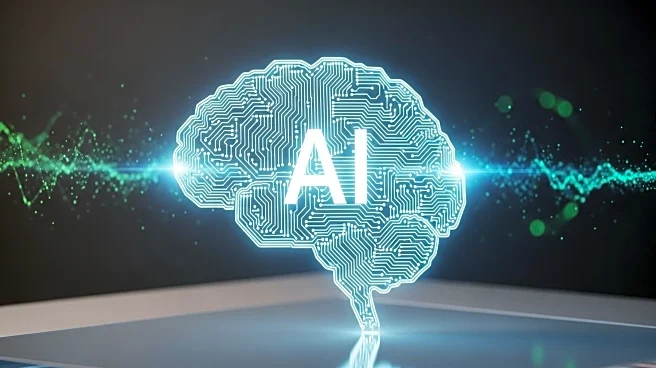What's Happening?
Dr. Andree Bates, CEO of Eularis, emphasizes the importance of AI literacy in the life sciences sector. She notes that while many professionals are familiar with AI tools like ChatGPT, they often lack the skills to use them effectively in their workflows. Bates advocates for a baseline capability in AI literacy, which includes understanding AI's limitations and recognizing biases in data. She highlights the emergence of new roles that combine traditional disciplines with AI, such as empathy trainers and ethics specialists. These roles require a blend of skills from psychology, linguistics, and data science, reflecting the interdisciplinary nature of AI applications in life sciences.
Why It's Important?
The integration of AI into life sciences is reshaping the workforce, necessitating new skill sets and roles. As AI becomes more embedded in clinical, regulatory, and commercial tasks, professionals must be equipped to handle these changes. The emphasis on AI literacy and interdisciplinary skills is crucial for ensuring that AI is applied responsibly and effectively. This shift has significant implications for workforce development, requiring ongoing training and adaptation. Companies that prioritize AI readiness and continuous skill development are likely to gain a competitive edge, while those that neglect these areas may face challenges in adoption and innovation.
What's Next?
Organizations are increasingly establishing internal AI academies and mentorship models to foster AI literacy and interdisciplinary collaboration. These initiatives aim to build confidence and create a culture of experimentation with AI tools. Companies are also linking AI competence to career progression, signaling its importance for success. As AI technology evolves rapidly, regular updates and training sessions are essential to keep employees informed and aligned with new opportunities and risks. This approach ensures that the workforce remains agile and capable of leveraging AI advancements effectively.
Beyond the Headlines
The push for AI literacy in life sciences highlights broader ethical and cultural dimensions. As AI tools become more prevalent, questions about fairness, bias, and transparency in their application arise. The development of roles like ethics specialists underscores the need for careful consideration of these issues. Additionally, the focus on interdisciplinary skills reflects a shift towards more holistic approaches in problem-solving, where diverse expertise is valued. This trend may lead to long-term changes in how life sciences organizations structure their teams and approach innovation.










